New in Ceasefire
New in Ceasefire, Special Reports - Thursday, September 7, 2017 12:13 - 0 Comments
Special Report">Dabke dancing, Football and Hip-Hop: A week of protests in the lead-up to the DSEI arms fair Special Report
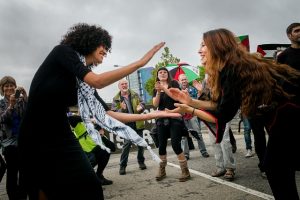
This week, activists from all over the UK have come to London to stop military equipment from getting into the setup of DSEI, one of the world’s biggest arms fairs. We will unite and mobilise as many people as possible against DSEI's message of perpetual-war and military escalation, writes Andrew Smith of Campaign Against Arms Trade.
New in Ceasefire, Politics - Wednesday, September 6, 2017 16:12 - 0 Comments
Comment">The UK government’s rhetorical trench warfare cannot hide Brexit’s grim realities forever Comment
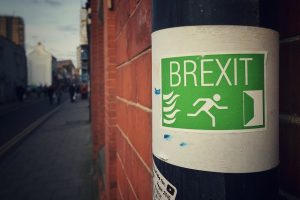 As another round of Brexit negotiations disintegrates, we need to ask questions about the mental maps UK representatives bring to the negotiations and decide whether they are fit for purpose, writes Paul Walsh.
As another round of Brexit negotiations disintegrates, we need to ask questions about the mental maps UK representatives bring to the negotiations and decide whether they are fit for purpose, writes Paul Walsh.
New in Ceasefire, Special Reports - Friday, September 1, 2017 11:30 - 0 Comments
Special Report">‘War starts here, let’s stop it here’: Anger as death-dealers head for London Special Report
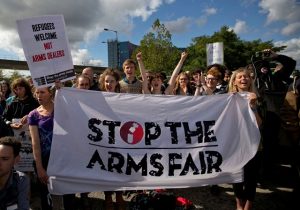 In the final essay in our three-part #StopDSEI series, Paul Cudenec reports on the toxic politics at the heart of DSEI, the world's largest arms fair, and the protest action set to greet it in London's Docklands next week, with opponents aiming to physically to stop it being set up.
In the final essay in our three-part #StopDSEI series, Paul Cudenec reports on the toxic politics at the heart of DSEI, the world's largest arms fair, and the protest action set to greet it in London's Docklands next week, with opponents aiming to physically to stop it being set up.
Ideas, New in Ceasefire - Friday, September 1, 2017 11:30 - 0 Comments
Opinion">Saudi’s bombing campaign is destroying my country, Yemen, and Britain is helping them do it Opinion
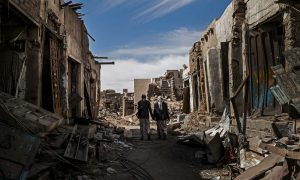 In the second essay in our three-part #StopDSEI series, Safa Al-Shamy gives her perspective on the motivations for the Saudi attack on her country, Yemen, the humanitarian crisis it has caused, and the UK's role in supporting it.
In the second essay in our three-part #StopDSEI series, Safa Al-Shamy gives her perspective on the motivations for the Saudi attack on her country, Yemen, the humanitarian crisis it has caused, and the UK's role in supporting it.
Ideas, New in Ceasefire - Friday, September 1, 2017 11:30 - 0 Comments
Analysis">The war on Yemen is about capitalism, not sectarianism Analysis
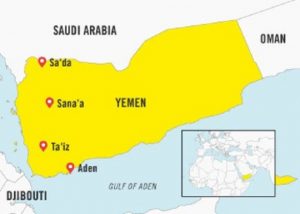 In the first essay in our three-part #StopDSEI series, Tom Anderson reviews the roots of the crisis in Yemen, where the civilian population has been enduring a brutal bombing campaign by a Saudi-led coalition, supported by the UK, since 2015.
In the first essay in our three-part #StopDSEI series, Tom Anderson reviews the roots of the crisis in Yemen, where the civilian population has been enduring a brutal bombing campaign by a Saudi-led coalition, supported by the UK, since 2015.
In Theory, New in Ceasefire - Monday, August 21, 2017 17:27 - 0 Comments
An A to Z of Theory">Augusto Boal: The Rainbow of Desire An A to Z of Theory
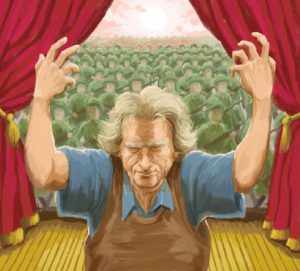 In the last of his seven-part series on the radical dramatist Augusto Boal, Andrew Robinson looks at the Rainbow of Desire, a set of techniques designed to deal with internalised oppression. Robinson surveys Boal's continuing influence, and the thorny question of whether theatrical challenges to oppression are always emancipatory.
In the last of his seven-part series on the radical dramatist Augusto Boal, Andrew Robinson looks at the Rainbow of Desire, a set of techniques designed to deal with internalised oppression. Robinson surveys Boal's continuing influence, and the thorny question of whether theatrical challenges to oppression are always emancipatory.
New in Ceasefire, Notes from the Margins, Politics - Friday, August 18, 2017 14:36 - 0 Comments
Essay">History, Peace and Beauty: On Barcelona’s Ramblas Essay
 Matt Carr pays homage to his old city, Barcelona, a target of yesterday's attacks. This was not the first time the Ramblas has been visited by terrorism, he writes. But, once again, we must mourn, then resume the difficult search for a society where such things cannot happen — where haters, extremists and fascistic reactionaries can have no place.
Matt Carr pays homage to his old city, Barcelona, a target of yesterday's attacks. This was not the first time the Ramblas has been visited by terrorism, he writes. But, once again, we must mourn, then resume the difficult search for a society where such things cannot happen — where haters, extremists and fascistic reactionaries can have no place.
New in Ceasefire, Politics - Thursday, August 17, 2017 15:17 - 0 Comments
Comment">Misused Trust: A story of Islamophobia, patriarchy and vigilantism Comment
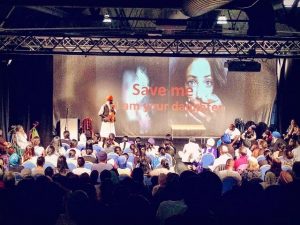 The controversial film 'Misused Trust' highlights the rise of an Islamophobic and misogynistic discourse within some in the UK Sikh community —in alliance with the British far right— which must be rejected and resisted, argues Katy Sian.
The controversial film 'Misused Trust' highlights the rise of an Islamophobic and misogynistic discourse within some in the UK Sikh community —in alliance with the British far right— which must be rejected and resisted, argues Katy Sian.
Arts & Culture, Books, New in Ceasefire - Wednesday, August 16, 2017 13:31 - 0 Comments
Literature">Where Epics Fail: On the enduring power, and beauty, of aphorisms Literature
 "It falls to the epigram to remind us of our higher selves and larger allegiances to one another". American-Egyptian poet and author Yahia Lababidi introduces an exclusive selection from 'Where Epics Fail', his forthcoming collection of aphorisms.
"It falls to the epigram to remind us of our higher selves and larger allegiances to one another". American-Egyptian poet and author Yahia Lababidi introduces an exclusive selection from 'Where Epics Fail', his forthcoming collection of aphorisms.
New in Ceasefire - Friday, July 28, 2017 15:36 - 0 Comments
Politics">The UK’s arming of Saudi Arabia’s war on Yemen is immoral. It should be made illegal too. Politics
 The humanitarian crisis in Yemen is a direct result of a war in which the UK is a key supplier of arms and military support. This immoral complicity must end, argues Andrew Smith of Campaign Against Arms Trade (CAAT).
The humanitarian crisis in Yemen is a direct result of a war in which the UK is a key supplier of arms and military support. This immoral complicity must end, argues Andrew Smith of Campaign Against Arms Trade (CAAT).

